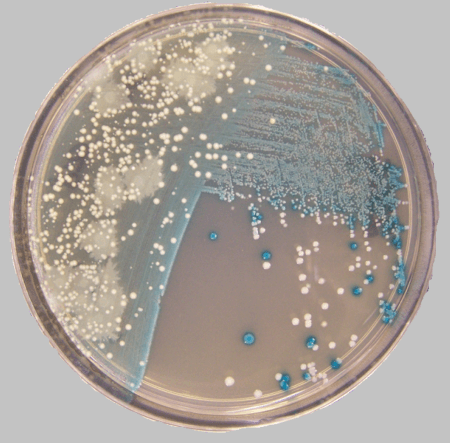Why are there More Recalls Due to Listeria monocytogenes
Why are there More Recalls Due to Listeria monocytogenes
 In the past few months there have been a number of recalls due to L. monocytogenes. Just in the month of September there were four recalls. The question is why are we seeing this increase in recalls? Is it a sign of more problems or a sign of the industry getting better in catching the problems earlier? Let’s review the following cases:
In the past few months there have been a number of recalls due to L. monocytogenes. Just in the month of September there were four recalls. The question is why are we seeing this increase in recalls? Is it a sign of more problems or a sign of the industry getting better in catching the problems earlier? Let’s review the following cases:
Blue Bell Ice cream
September 21: FDA announced that the company is voluntarily recalling some half-gallon and pint-sized chocolate chip cookie dough and half-gallon “Cookie Two Step” products because they were made with a chocolate chip cookie dough ingredient supplied by a third party supplier Aspen Hills, Inc., due to the potential of being contaminated with – Listeria monocytogenes. The products were produced with the chocolate chip cookie dough pieces and were distributed in Alabama, Georgia, Kentucky, Louisiana, Mississippi, North Carolina, South Carolina, Tennessee and Virginia. No illnesses have been reported to date. Blue Bell identified a potential problem through intensified internal testing and notified Aspen Hills. Although the products in the marketplace have passed the test and hold program, which requires that finished product samples test negative for Listeria monocytogenes, Blue Bell is still initiating this recall out of an abundance of caution. It is important to mention that last year, Blue Bell had to halt production and issue a massive recall of its products due to a Listeria outbreak .. According to CNN the company had spent 2016 getting its products back in stores. It just delivered tubs to Raleigh, North Carolina, for the first time two days before the latest recall was announced. It seems as if the enhanced safety screenings the company adopted after the last year’s catastrophe may be what caught the issue. The company had identified the problem through “intensified internal testing” the company reported.
Apple Tree Goat Dairy
September 20: FDA announced that the company is recalling Feta cheese, Gouda Cheese, French Herb Chevre because it has the potential to be contaminated with Listeria monocytogenes. These products may have been distributed in Washington DC, New Jersey, Delaware, Maryland and Virginia. No illnesses have been reported to date. The recall was the result of a routine sampling program by Pennsylvania Department of Agriculture. The samples collected by Pennsylvania were found to be contaminated with Listeria Monocytogenes.
Kellogg’s® Eggo® Nutri-Grain® Whole Wheat Waffles
September 19: We reported in a previous blog about the Eggo recall of 10,000 cases of Kellogg’s® Eggo® Nutri-Grain® Whole Wheat Waffles because they have the potential of being contaminated with Listeria monocytogenes. No other Eggo products are implicated and there were no reports on of illness to date. Kellogg announced that the recall was a result of routine tests that the company conducted which identified the potential for contamination.
SM Fish
September 8: FDA announced the voluntary recall of OSSIE’S brand ready-to-eat salads because they have the potential to be contaminated with Listeria monocytogenes. These products were sold at the firm’s seven retail outlets located in New York and New Jersey between August 1, 2016 and September 9, 2016. No illnesses have been reported to date. The recall was the result of sampling and inspectional findings by the US Food and Drug Administration (FDA). FDA found Listeria monocytogenes in multiple locations throughout the facility. SM Fish Corp. has ceased production and distribution of products.
Why Do We See More Recalls?
According to Steryicycle ExpertSOLUTIONS FDA recalled food units in the second quarter (Q2) of 2016 were more than 80 times higher than the first quarter (Q1), while USDA recalled product pounds more than 45 times higher. FDA contamination recalls alone rose 167 percent from Q1 to Q2 – higher than any quarter in 2014 or 2015. However, this trend is due to advancements in testing, as testing becomes faster, cheaper and more precise, and regulators have also reduced the acceptable levels of pathogens in certain classes of foods. Even foods designated for cooking, which include kill steps, are subject to stricter regulations. Across America Patch interviewed Professor Elliot Ryser (food science at Michigan State University)who claimed that the increase in recalls is actually a sign that food safety measures are getting better, not worse. And, more specifically to Listeria, it is sickening fewer people than ever before. As Ryser explained, our technology for detecting outbreaks has improved. “The CDC [Centers for Disease Control] has gone to what they call ‘whole-genome sequencing’ to identify Listeria and other pathogens. It is more sensitive than what we’ve used in the past,” he said. Perhaps the increase in recalls is because the companies manage better their supply and catch potential problems earlier. According to Dr. Ryser “The number of cases of listeriosis has dropped quite dramatically since the 1990s,” Ryser said. “The estimate back then was 2,500 cases a year, and now we’re down to about 1,500 cases a year.”
